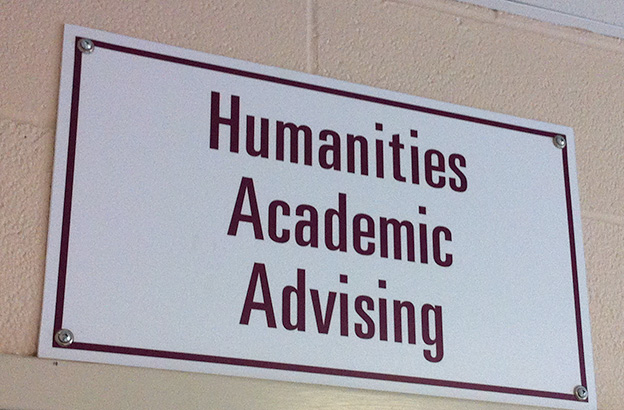‘No matter what you’re dealing with, come and see us’

Jackie Osterman has helped students through just about everything during her nearly 30-year career as a faculty advisor: course conflicts, missed exams and figuring out degree requirements, among other things.
Over the last number of years, however, Osterman and her colleagues have seen a rise in the number of students needing help with the impact of mental illness on their academics.
“Mental health issues are now the number one medical reason for us seeing a student,” said Osterman. “Anger management, anxiety, stress, disorders on the autism spectrum, eating disorders, depression – we see it all.”
It’s this change in the nature of academic advising that led Osterman and others to advocate for more mental health training and resources for front-line university staff – one of five key recommendations in McMaster’s new Student Mental Health and Well-Being Strategy.
Released last week at an event in MUSC, the strategy outlines how McMaster can “create and sustain a culture of caring” for student affected by mental illness.
In addition to providing more resources and training for staff, the strategy also recommends implementing a proactive, coordinated and consistent approach to students in difficulty across campus.
It also recommends the University adapt its accommodation policies to the changing needs of students.
Osterman applauds these moves, but adds that some myth-busting will be necessary to earn student trust.
“We frequently work with Student Accessibility Services, the Student Wellness Centre and faculty members to ensure students dealing with mental illness get the accommodations they need,” said Osterman.
“But students are understandably nervous – they fear the stigma associated with mental illness, they think they’ll be singled out in class and they often think that if they accept accommodation, their degree will somehow be worth less.”
Osterman says advisors do their best to reach all the students in their faculty, but admits there are always some who leave the University not knowing they had access to academic counseling.
“We want students to know that we’re here, and we want to help,” she said. “No matter what you’re dealing with, come and see us.”
How to find an academic advisor:
Business
Science
Social Sciences
Humanities
Health Sciences
Engineering

